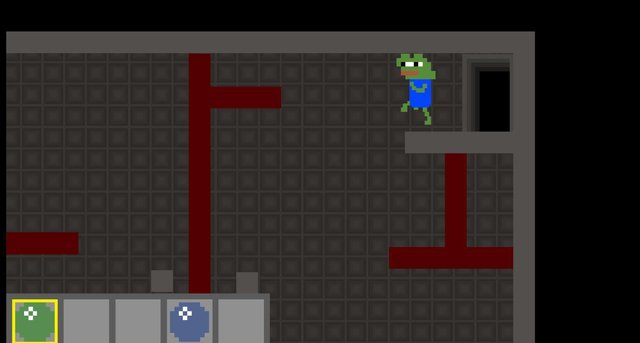Buddakin Mac OS
Takeout Available
Support Communities / Mac OS & System Software / OS X Mountain Lion Looks like no one’s replied in a while. To start the conversation again, simply ask a new question. Buddakan is a restaurant chain serving New American Asian cuisine owned by STARR Restaurants with locations in Philadelphia, Pennsylvania, New York City, New York and Atlantic City, New Jersey. Stephen Starr opened the first restaurant in 1998 in Philadelphia. References External. The Mac OS X version of DAKOTA comes packaged with the libraries it requires. Extract the DAKOTA archive file in a suitable install location, e.g. If you have root access, you may extract the archive in a shared directory, e.g. Make sure your OS can find the DAKOTA.

Sunday – Thursday: 4pm – 9pm
Friday & Saturday: 4pm – 10pm
Call (215) 574-9440 for Pick Up.
Visit the following delivery services.
Caviar
DoorDash
Takeout Dinner Packages
Zen for 2 $50
Steamed Edamame
Cantonese Spring Rolls shrimp, chicken
Szechuan Pork Dumplings chili-soy broth
Wok Cashew Chicken plum wine sauce
Nirvana for 2 $75
Large Asian Caesar Salad spicy cashews
Chicken and Ginger Dumplings sesame dipping sauce
Pan Seared Sea Bass truffle jus
Vegetable Rice coconut-curry foam
Peking Duck Dinner for 2 $98
Whole Peking Duck bao buns, mu shu pancakes, cucumbers, scallions
Large Asian Caesar Salad spicy cashews
Vegetable Rice coconut-curry foam
Curried Cauliflower spiced cashews, madras curry
Peking Duck Dinner for 4 $125
Whole Peking Duck bao buns, mu shu pancakes, cucumbers, scallions
Steamed Edamame
Small Crispy Calamari Salad sweet miso dressing
Small Asian Caesar Salad spicy cashews
Vegetable Rice coconut-curry foam
Curried Cauliflower spiced cashews, madras curry
“Dip Sum” Doughnuts
Buddakan Mac Os Download
Buddakan Celebration Dinner for 2 $120
Edamame Dumplings truffled sauternes-shallot broth
Spicy Rock Shrimp Bao Buns (2 pieces) pickled slaw
Small Crispy Calamari Salad sweet miso dressing
Grilled Lamb Chops (2 pieces) mongolian barbecue sauce, tiger salad
Pan Seared Sea Bass truffle jus
Crab Fried Rice wok scrambled egg, cilantro
“Dip Sum” Doughnuts
The most recent Linux version of DAKOTA is built on Red Hat Enterprise Linux 6.3. It should also run on other Linux distributions that maintain binary compatibility with RHEL, such as CentOS. Users of other Linux distributions and (non-Mac) *nix OSes may find it necessary to build DAKOTA from source.
Buddakan Mac Os X

Buddakan Mac Os Catalina
The Mac binaries are built on OS X 10.5.8.
Buddakan Mac Os 11
- Prepare your system by installing required dependencies. For a RHEL 6.3 system, these can be obtained from the Yum repositories by executing the command:The Mac OS X version of DAKOTA comes packaged with the libraries it requires.
- Extract the DAKOTA archive file in a suitable install location, e.g. /home/myusername. If you have root access, you may extract the archive in a shared directory, e.g. /usr/local.
- Make sure your OS can find the DAKOTA executables and libraries.
- Open the Bash startup file in your home folder using your favorite text editor. On Linux, this is ~/.bashrc. On Mac, it's ~/.bash_profile.
- On Linux and Mac, add the following line, replacing $INSTALL_DIR with the absolute path to your installation directory, e.g. /home/myusername or /usr/local/Dakota.
- On Linux only, add the following line, replacing $INSTALL_DIR as appropriate.
- On Mac OS only, add the following line, replacing $INSTALL_DIR as appropriate.
- Save and close the file. Close and reopen the terminal to activate the changes in your environment.
For C shell:- Open the csh startup file in your home folder (~/.cshrc) using your favorite text editor.
- On Linux and Mac, add the following line, replacing ${INSTALL_DIR} with the absolute path to your installation directory, e.g. /home/myusername or /usr/local/Dakota.
- On Linux only, add the following line, replacing $INSTALL_DIR as appropriate.
- On Mac OS only, add the following line, replacing $INSTALL_DIR as appropriate.
- Save and close the file. Close and reopen the terminal to activate the changes in your environment.